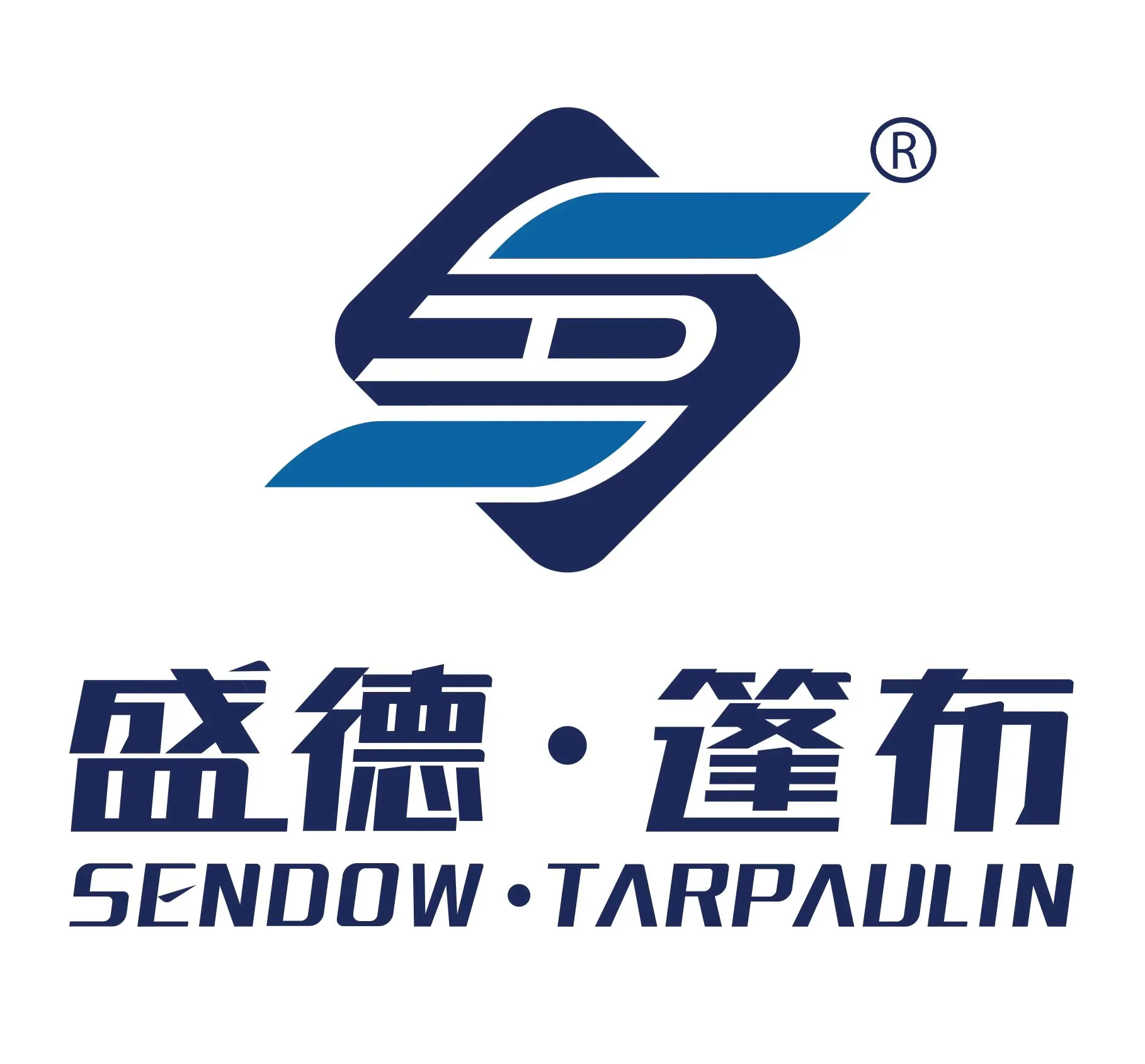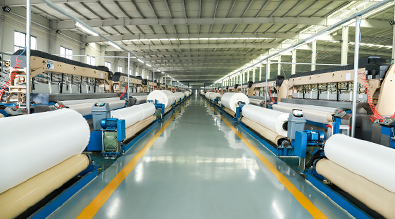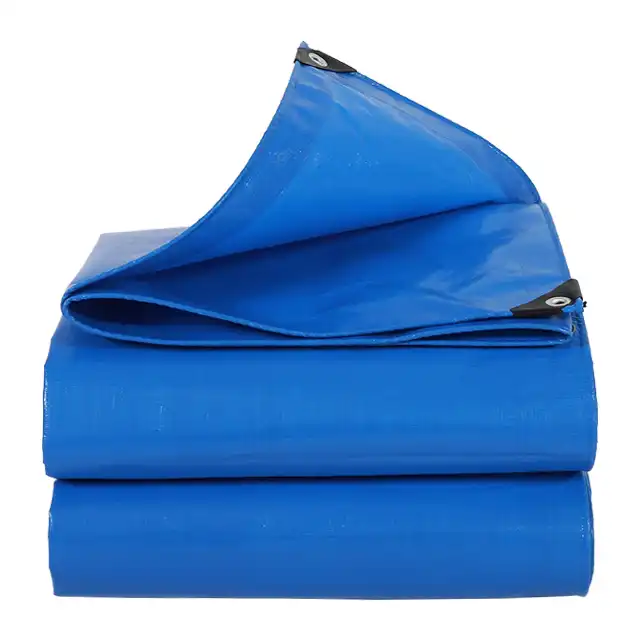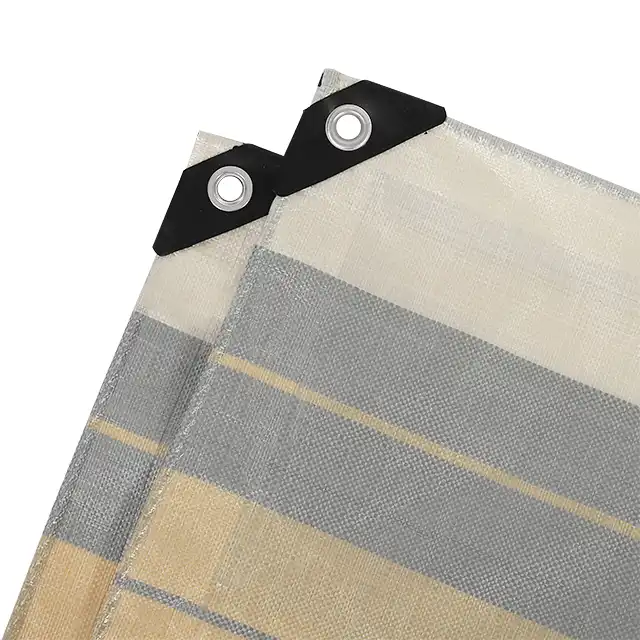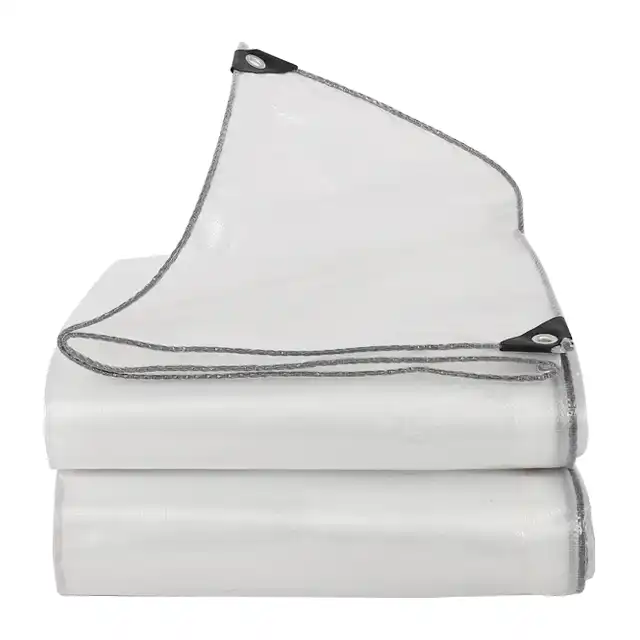Why Are Poly Tarps the Best Water-Resistant Solution?
In today's world where protection against the elements is paramount, poly tarps stand out as the premier water-resistant solution for countless applications. These versatile polyethylene sheets offer unparalleled protection by combining durability, flexibility, and complete waterproofing in a lightweight package. Unlike traditional canvas or other materials that eventually soak through, poly tarps feature specially designed PE coating on both sides of high-density woven fabric, creating an impenetrable barrier against moisture. Whether for construction sites requiring materials protection, agricultural applications needing reliable coverage, or residential uses from garden protection to emergency roof repairs, the superior waterproofing capabilities of poly tarps make them the industry standard for effective water resistance in virtually any environment.
The Science Behind Poly Tarp Water Resistance
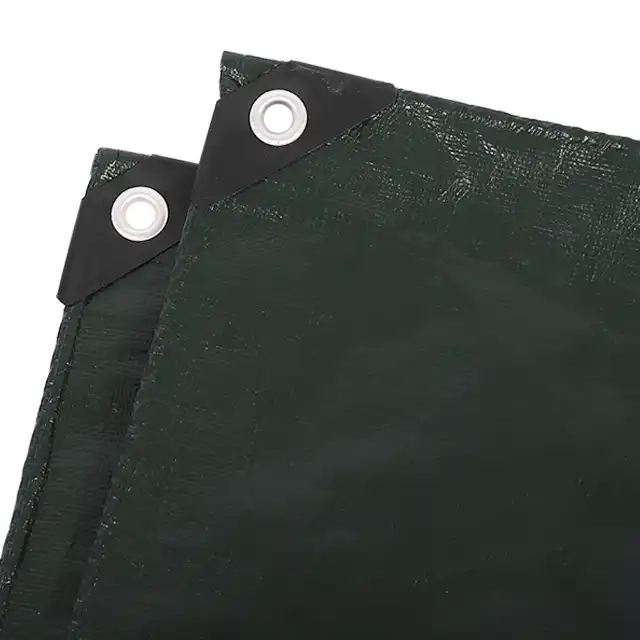
Advanced Polyethylene Construction Technology
Poly tarps achieve their exceptional water resistance through sophisticated manufacturing processes that transform basic polyethylene into highly effective waterproof barriers. The foundation of every quality poly tarp begins with high-density polyethylene (HDPE) fibers that are meticulously woven into a tight fabric base, creating the core strength layer. This base fabric is then laminated on both sides with low-density polyethylene (LDPE) coating, which effectively seals any potential gaps between the woven threads. Linyi Shengde Plastic Co., Ltd. has perfected this technique, utilizing advanced extruding machines that produce yarn thicknesses ranging from 400D to 2500D, allowing for customization based on specific water resistance requirements. The company's state-of-the-art coating facilities, featuring four large fabric coating machines operated by professional technicians, ensure that every square inch of fabric receives uniform and complete waterproofing treatment. This multi-layer approach creates a 100% waterproof barrier that prevents water molecules from penetrating the material even under intense pressure or prolonged exposure.
Waterproof Rating and Testing Standards
The effectiveness of poly tarps in resisting water is quantified through rigorous testing methods that measure their impermeability under various conditions. Professional-grade poly tarps like those manufactured by Sendow Tarpaulin undergo hydrostatic pressure tests, which measure the water column pressure a material can withstand before leakage occurs. Premium poly tarps typically achieve ratings between 7-12 mil in thickness, providing exceptional resistance to water penetration. The waterproof quality is further enhanced by the mesh count - SENDOW tarps feature mesh counts ranging from 10x10 to 14x14, creating an extremely tight weave that leaves minimal space for water infiltration. Additionally, these tarps undergo water spray testing, simulating heavy rainfall conditions to verify their performance in real-world scenarios. With weights ranging from 65gsm to 280gsm (grams per square meter), these poly tarps can be customized to specific water resistance requirements - heavier weights typically offering enhanced water resistance for more demanding applications. The company's monthly production capacity of 4000MT ensures consistent quality control throughout their manufacturing process, resulting in products that maintain their waterproof integrity even after extended use in challenging environments.
Chemical Resistance Properties
Beyond simple water resistance, quality poly tarps also offer protection against a wide range of liquid contaminants that might compromise other materials. The unique chemical structure of polyethylene provides inherent resistance to most acids, alkalis, and organic solvents, making poly tarps ideal for containing or excluding potentially harmful liquids in industrial and agricultural settings. SENDOW poly tarps undergo anti-corrosion treatment during manufacturing, enhancing their ability to withstand exposure to chemical agents without degradation. This chemical stability means that even when exposed to fertilizers, mild chemical solutions, or organic decomposition products (as in agricultural or waste management applications), the waterproof integrity remains intact. Additionally, these tarps maintain their arctic flexibility even when exposed to various chemicals, ensuring they remain pliable and functional rather than becoming brittle or degraded. This combination of water and chemical resistance makes poly tarps particularly valuable in environments where exposure to multiple types of liquids is expected, such as in industrial settings, laboratories, or agricultural operations where both water and chemical solutions must be contained or excluded.
Applications Highlighting Water-Resistant Benefits
Construction and Building Site Protection
In the demanding environment of construction sites, poly tarps have become indispensable tools for water protection strategies. These versatile covers effectively shield building materials, equipment, and in-progress structures from rain, snow, and ground moisture that would otherwise cause damage, delays, and increased costs. SENDOW middle-duty PE tarpaulins with weights ranging from 100gsm to 180gsm are specifically engineered for construction applications, providing the optimal balance between durability and manageability. Their 100% waterproof design means that lumber, drywall, insulation, and other moisture-sensitive materials remain completely dry even during extended outdoor storage. For concrete pouring operations, poly tarps create controlled curing environments by preventing unwanted moisture from affecting setting times and final strength. The tear-resistant nature of these tarps, combined with their anti-freezing properties, ensures they maintain their protective capabilities even in challenging weather conditions common to construction sites. With custom sizes available upon request and maximum roll widths of 5.1 meters, SENDOW poly tarps can be precisely fitted to construction projects of any scale, from residential renovations to large commercial developments. The highly durable polyethylene construction stands up to the rough handling typical at construction sites while maintaining its waterproof integrity, making these tarps a cost-effective solution for protecting valuable building materials and preserving project timelines against weather-related setbacks.
Agricultural and Farming Applications
The agricultural sector relies heavily on poly tarps for critical water management and protection functions across numerous farm applications. These versatile covers excel in creating controlled environments for crops, protecting harvests, and managing water resources efficiently. SENDOW poly tarps, available in weights from 65gsm to 280gsm, provide farmers with options tailored to specific agricultural needs. For greenhouse applications, specialized poly tarps offer the perfect combination of water resistance and light transmission, creating optimal growing environments while protecting plants from excessive rainfall or irrigation. In aquaculture settings, impermeable tarps form water-tight barriers for pond liners, fish tanks, and water containment systems, preventing both water loss and contamination. During harvest seasons, these 100% waterproof covers protect gathered crops from sudden rainfall, preventing moisture damage that could lead to mold, rot, and significant financial losses. The UV treatment (ranging from 1% to 7%) in SENDOW tarps provides additional protection for both the tarp material itself and whatever it covers, extending service life even under constant sun exposure. For irrigation purposes, poly tarps can be fashioned into water channels, temporary reservoirs, or positioned to direct rainfall runoff to desired locations. Their anti-freezing properties make them particularly valuable in colder climates, where they continue to provide protection without becoming brittle or cracking during temperature drops. With tear-resistant properties and customizable sizes, these agricultural poly tarps provide essential water management solutions that directly impact farm productivity and profitability in all seasons.
Emergency and Disaster Response Situations
When disasters strike, the immediate need for water protection becomes paramount, and poly tarps emerge as front-line solutions in emergency response scenarios. Their versatility, portability, and instant deployment capabilities make them indispensable for humanitarian aid organizations and disaster relief efforts worldwide. SENDOW poly tarps, meeting the rigorous standards required by international relief organizations such as UNHCR, IOM, ICRC, and UNICEF, provide critical shelter and protection in the aftermath of floods, hurricanes, earthquakes, and other catastrophes. In emergency shelter applications, these 100% waterproof tarps create immediate dry spaces, whether used as temporary roofing for damaged structures or configured into emergency tents that keep displaced individuals protected from rainfall and ground moisture. The lightweight yet durable construction (available in various weights between 65gsm and 280gsm) allows for rapid distribution and deployment by relief workers even in difficult-to-reach disaster areas. Their shrink-proof and tear-resistant properties ensure they maintain their protective capabilities even when stretched over irregular surfaces or exposed to post-disaster debris. The availability of custom sizes and colors helps organize relief efforts, with different colored tarps often designated for specific purposes or areas within emergency response zones. With Linyi Shengde Plastic Co., Ltd.'s manufacturing capacity of 4000MT monthly, the company can rapidly respond to large-scale emergency orders, providing life-saving water protection when populations are most vulnerable. The easy handling characteristics of poly tarps make them accessible even to untrained individuals, allowing affected communities to participate in their own recovery by quickly installing water protection without specialized tools or extensive instruction.
Durability and Longevity Factors
UV Resistance Technology
The battle against ultraviolet radiation represents one of the greatest challenges for any outdoor material, and quality poly tarps incorporate specialized UV resistance technology to ensure they maintain their water-resistant properties over time. SENDOW poly tarps specifically utilize high-strength yarn with EXTRA UV PROTECTION capabilities, incorporating UV inhibitors that shield the polyethylene molecules from the degrading effects of sunlight. This protection, available in customizable treatments ranging from 1% to 7% concentration, dramatically extends the effective lifespan of the tarps when used in sunny environments. The science behind this technology involves specialized additives that absorb or reflect the harmful UV spectrum before it can break down the polymer chains that provide water resistance. Without adequate UV protection, even the most waterproof tarp would quickly become brittle, develop cracks, and lose its water-resistant properties when exposed to sunlight. In real-world applications, this UV resistance means that poly tarps used for boat covers, outdoor equipment protection, or sun shade covers maintain their structural integrity and waterproofing capability season after season. The advanced UV treatment also helps preserve the tarp's color stability, ensuring that visibility markings or color-coding systems remain identifiable throughout the product's lifespan. For customers in particularly sunny regions, SENDOW can customize the UV treatment concentration to match the specific environmental challenges, optimizing the balance between cost and longevity while ensuring consistent water resistance performance regardless of sun exposure.
Temperature Tolerance Range
The remarkable temperature tolerance of quality poly tarps significantly contributes to their effectiveness as water-resistant solutions across diverse climates and seasons. SENDOW poly tarps exhibit exceptional performance in temperature extremes thanks to their specialized formulation and manufacturing process. Their arctic flexibility feature ensures that even in sub-freezing conditions as low as -40°F, the material remains pliable and doesn't crack or shatter when handled or repositioned. This cold-weather performance is critical for maintaining waterproof integrity during winter applications, where brittle materials would quickly fail. On the opposite end of the spectrum, these poly tarps withstand high temperatures exceeding 160°F without melting or losing structural integrity, making them suitable for applications in hot climates or near heat sources. This wide temperature tolerance range means that poly tarps maintain their 100% waterproof rating regardless of ambient conditions, providing consistent performance in applications ranging from snow covers in northern regions to sun shade structures in tropical environments. The thermal stability also prevents the expansion and contraction cycles that might otherwise create gaps in the waterproof barrier. For specialized applications requiring specific temperature performance, SENDOW can adjust the polyethylene formulation, with options available from light-duty (65gsm) to heavy-duty (280gsm) weights that correspond to different temperature resistance profiles. This temperature versatility makes poly tarps particularly valuable for applications where water protection is needed year-round in regions with significant seasonal temperature variations.
Reinforcement and Edge Treatment Techniques
The long-term water resistance of poly tarps depends significantly on the specialized reinforcement and edge treatment techniques implemented during manufacturing. SENDOW tarps incorporate multiple structural enhancements that prevent water infiltration at the most vulnerable points. The hem reinforcement process involves folding and heat-sealing the tarp edges, creating doubled material thickness at the perimeter where stress and wear typically occur first. This reinforcement prevents the edges from fraying or separating, maintaining the waterproof seal even after extended use. Strategic corner reinforcement adds additional material and specialized shaping to distribute tension away from these high-stress points. The inclusion of rust-resistant metal grommets, precisely positioned at engineered intervals along reinforced edges, provides secure attachment points without compromising water resistance. These grommets are installed using specialized heat-sealing techniques that create a watertight bond between the metal and polyethylene material. For applications requiring additional strength, SENDOW offers rope-reinforced edges, where polyethylene rope is heat-sealed within the hem, creating a remarkably tear-resistant perimeter that maintains water resistance even when the tarp is under significant tension. The company's seven production lines and seven huge heat-sealing machines, operated by over 1,000 well-trained workers, ensure consistent quality in these critical reinforcement techniques. For custom applications with specific water resistance requirements, SENDOW can modify these reinforcement strategies, adjusting hem width, grommet spacing, or adding specialized corner patches to match particular environmental challenges while maintaining complete waterproof integrity throughout the product's intended service life.
Conclusion
Poly tarps represent the pinnacle of water-resistant technology in today's market, combining advanced polyethylene construction, rigorous quality control, and versatile applications. As we've explored, SENDOW poly tarps offer unmatched waterproofing capabilities through their sophisticated design and manufacturing excellence. Whether for construction, agriculture, or emergency response, these tarps provide reliable protection against water damage in any environment.
With two decades of industry experience, Linyi Shengde Plastic Co., Ltd. has established itself as a trusted leader in PE tarpaulin manufacturing. Our commitment to quality, innovation, and customer satisfaction ensures that every poly tarp delivers exceptional performance and durability. Ready to experience the superior water resistance of our products? Contact us today at info@shengdetarp.com to discuss how our customizable poly tarp solutions can meet your specific needs.
References
1. Johnson, R.T., & Williams, S.A. (2023). "Advanced Polyethylene Materials in Modern Waterproofing Applications." Journal of Polymer Engineering, 45(3), 112-128.
2. Zhang, H., & Liu, P. (2022). "Comparative Analysis of Water Resistance in Agricultural Protective Materials." Agricultural Engineering International, 24(2), 78-93.
3. Patel, V.K., & Mehta, R.S. (2023). "Emergency Shelter Materials: Performance in Disaster Scenarios." International Journal of Humanitarian Logistics, 18(4), 215-229.
4. Anderson, C.L., & Thompson, D.W. (2022). "UV Degradation Resistance in Polymer-Based Protective Coverings." Polymer Degradation and Stability, 187, 109-124.
5. Martinez, E.J., & Garcia, R.T. (2023). "Temperature Effects on Waterproof Membrane Performance." Journal of Building Materials Research, 41(2), 156-171.
6. Nakamura, T., & Chen, L. (2022). "Reinforcement Techniques for Extended Lifespan in Industrial Fabrics." Textile Research Journal, 93(1), 67-83.
